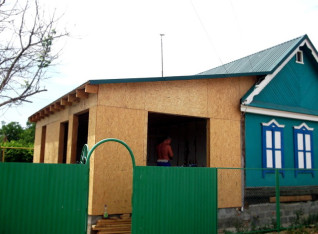Лоер
The decision of the body of custody and care on determining the child's place of residence.
Determining the place of residence of the child is one of the most important aspects in the process of divorce or separation of parents. This decision affects the child's well-being, stability and development. In this context, an important role is played by the decision of the guardianship authority to determine the child's place of residence. Let's take a closer look at this process.
What determines the child's place of residence?
Determining the child's place of residence ensures:
Stability and clarity in raising a child: Finding out which parent the child will live with on a permanent basis.
Organization of care and provision of children's rights: Establishing responsibility for education, medical care and social protection.
Legal resolution of issues of travel abroad: Simplification of the procedure for obtaining permission for a child to travel abroad.
Conclusion of the body of guardianship and care on determining the place of residence of the child
The opinion of the guardianship authority is an important document that is submitted to the court to make a decision on the child's place of residence. This conclusion is formed on the basis of an analysis of living conditions, financial status of parents and their ability to provide adequate care and education.
The procedure for obtaining a conclusion
Appeal to the guardianship authority: One of the parents submits an application to the relevant authority.
Examination of living conditions: Representatives of the authority visit the home of both parents to assess the child's living conditions.
Interview with parents and child: Clarification of family relationships and identification of the child's wishes regarding residence.Preparation of the conclusion: Based on the collected data, the guardianship authority draws up a conclusion about the best conditions for the child's residence.
The decision of the body of custody and care on determining the child's place of residence
The guardianship authority issues an official document outlining their recommendations for the best living conditions for the child. This decision can serve as an important argument in court during the consideration of the case on determining the child's place of residence.
Sample conclusion on determining the child's place of residence
Conclusion of the body of guardianship and care
Date: ______
Place of issue: ______
Based on the survey of living conditions and interviews with the parents and the child, the guardianship body makes the following conclusion:
Housing conditions: The housing of the father/mother (specify) meets all the necessary requirements for the child's residence, in particular, the availability of a separate room/bed for the child, sanitary conditions, safety, etc.
Financial status: The father/mother (specify) has a stable income that allows for an adequate standard of living for the child.
Educational conditions: The father/mother (specify) demonstrates the ability and desire to raise the child, support its development and education.
Family relations: The child has a good relationship with his father.
Judgment
The court's decision to determine the child's place of residence with the father or mother must be justified and based on the interests of the child. The court takes into account all the circumstances, including the material and living conditions of each parent, their moral record and other factors.Statement of claim and other documents
In order to initiate a legal process, it is necessary to file a claim to determine the child's place of residence. All circumstances of the case and evidence confirming the plaintiff's position must be specified in the claim. A statement of claim to determine the place of residence of the child with the mother or with the father may contain arguments in favor of each of the parents.
Conclusion
Determining a child's place of residence is a complex and multifaceted process that requires consideration of many factors. Correct legal processing of this issue is a guarantee of the well-being of the child and its development. Regardless of whether this is through an agreement between the parents or through a court decision, the best interest of the child should be the primary criterion.




































